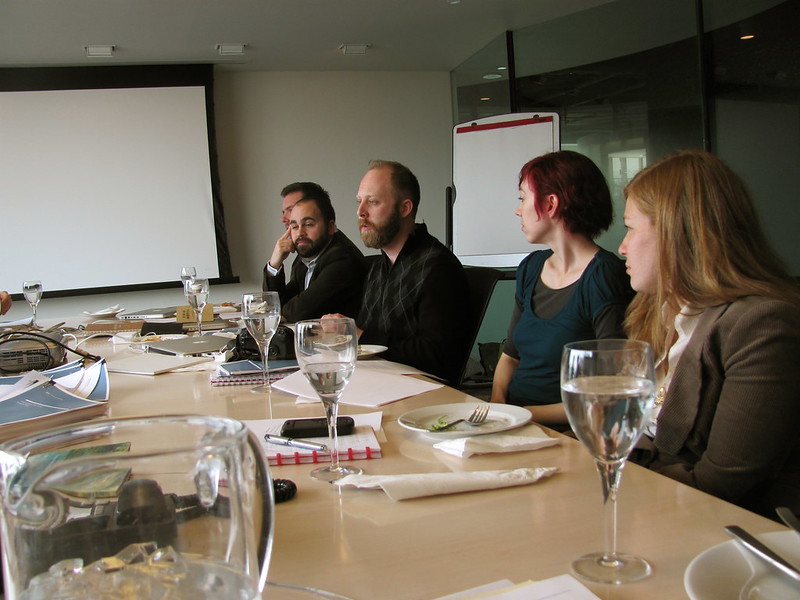
Image Credit: Jeffrey Zeldman
Let us all agree: not every meeting that you go to requires your presence. In fact, there may be a number of meetings that you attend that are basically just a waste of your time. The person who was setting up the meeting didn’t really need to have you there, they just wanted to make sure that they didn’t forget anyone who might be important. The downside of all of this is that your time is being wasted. What managers need to do is to find ways to avoid having to go to meetings that they don’t need to attend. How can we make this happen?
Why We Waste Our Time
Let us all agree that the corporate world has always loved meetings just a bit too much. But then the pandemic happened and it accelerated the problem, as managers desperately attempted to supervise their direct reports after the shift to remote work, and team members strove to coordinate with each other and maintain some semblance of their social connection. A study showed that professionals now spend more than half the standard workweek—a full 21½ hours – stuck in meetings. This is an increase of 7.3 hours a week just since the pandemic began.
Even as many companies have returned to the office or adopted hybrid arrangements, it seems the bias toward more meetings may have stuck with us. The overall number of meetings remains up nearly 70% versus a year ago, the study reports. And of course, more of our meetings are being held virtually. This creates an additional challenge because they can be particularly exhausting compared with in-person meetings, Research has shown that this is the case given the intensity of close eye contact and the mentally stressful temptation to monitor one’s own reflection.
So what do managers have to show for this surplus of meetings? Apparently not much. One study of senior executives showed that only 17% believed meetings were a good use of either group or individual time. Indeed, the time we spend in these meetings is time that we’re not accomplishing the “deep work” we are evaluated on. As most managers know all too well, much of our actual work ends up getting shunted to nights and weekends.
How To Avoid Unnecessary Meetings
How can managers go about fighting back the problem of too many meetings? The first thing that we need to do is to address the problem upstream. If everyone around you seems to love meetings, it’s going to be hard to be the voice arguing against them. Instead, you need to try to tackle the problem upstream. If you’re the manager, you can implement something like a “meeting-free Friday” experiment, in which at least one day a week is held sacred, department wide, for more focused work.
You can also try to appeal to shared sentiment. Even when people are dissatisfied with the too many meetings problem, they’ll likely revert to their old habits unless they’re “disrupted” from that behavior. As their manager you can be the disrupter by reminding them of what they’re already feeling. For example, you could say “I don’t know about you, but it seems like we’re all pretty exhausted from so many meetings these days. Instead of meeting as a team to brainstorm about our project, maybe we could just delegate it to one person to come up with initial ideas and then at our next official team meeting, we could review them. What do you think?” By doing this you’re not seen as shirking responsibility by dodging an ill-conceived meeting. It is possible that your suggestion is making it easier for everyone to skip a meeting no one really wanted or needed.
Finally, you need to take the time to interrogate the invitation. If it’s the default at your company to suggest a meeting to talk about things, the bar for a meeting-worthy occasion is likely fairly low. This means that you can’t simply assume that because you’ve been invited that it will be a good use of your time. Instead, you are going to have to make it standard practice to “interrogate the invitation” by asking the meeting host what the meeting topic will be and what, specifically, they’d like you to contribute to the meeting. If they give a vague answer then that’s a sign that either the agenda is ill-formed or you won’t have a meaningful role to play. In that case you can likely beg off with a friendly note.
What All Of This Means For You
We can all agree that meetings generally aren’t anyone’s idea of a good time. However, all too often we accept them as a necessary “tax” on our productivity. We view them as being the inevitable cost of being part of an organization. It turns out that this doesn’t have to be true. By using the strategies that we’ve discussed, you can evade the most painful and least productive meetings. With a little luck this leaves you room for more important work.
– Dr. Jim Anderson
Blue Elephant Consulting –
Your Source For Real World IT Management Skills™
Question For You: What should you do if you find yourself in a meeting that you’ve just realized is a waste of your time?
P.S.: Free subscriptions to The Accidental IT Leader Newsletter are now available. Learn what you need to know to do the job. Subscribe now: Click Here!
What We’ll Be Talking About Next Time
I don’t know about you, but it sure seems that in the past few years, everything has changed. Yes, that whole pandemic thing was a big disruptive influence on everyone, but there had been changes brewing even before that. The pandemic just seemed to accelerate things. Now managers find themselves in charge of a new workforce that has a whole new set of expectations about how things are supposed to work. How can we manage this new hybrid workforce successfully?

